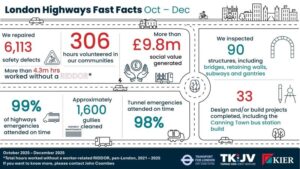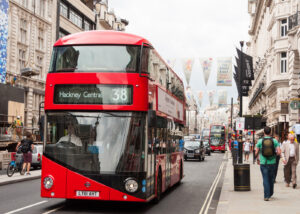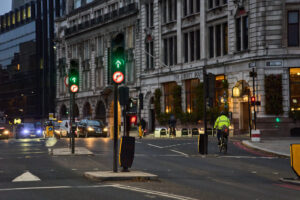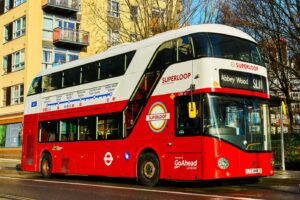Transport for London, in collaboration with the Mayor’s Office for Policing and Crime (MOPAC), police and charities Brake and RoadPeace, is launching a new pilot victim support service to improve support for victims of the most serious road traffic collisions in London.
It says the service will enhance the level of support available to families left bereaved and those catastrophically injured and make it easier to access the support they need following incidents that can often devastate lives.
102 people were killed and 3,859 seriously injured on London’s roads last year. TfL says the devastating consequences for the families, friends and communities impacted by these deaths and life-changing injuries is immense.
The new service will help support people affected by the most serious collisions and those experiencing a bereavement or catastrophic injury, through:
- Caseworkers recruited by Brake, who can provide trauma-informed, emotional and practical support for each victim and their family, including help navigating the justice system, advocacy and help accessing specialise services if needed
- Longer-term aftercare support provided by RoadPeace, specialising in support from people with experience of the devastation caused by road traffic collisions, via dedicated London support groups, a telephone befriending service and an eight-week trauma support programme for families bereaved by road deaths
- Support will be available in person for those who need it, as well as over the phone and online
- Direct referral from the police into support services, which will mean that victims of the most serious traffic collisions will no longer be responsible for sourcing help and initiating contact themselves
Working in partnership with the Metropolitan Police Service (MPS) and City of London Police (CoLP), the service will be launched as a pilot in the autumn and will be accessible through direct referral from the MPS’s Serious Collision Investigation Unit. Victims will be offered a referral into the service. With their consent, their details will be passed to Brake and then to RoadPeace, taking the onus off them to source help and initiate contact.
The service will be staffed by dedicated, trained caseworkers, co-ordinators and volunteers, who will be able to use their training and experience to ensure that victims and others affected by incidents have access to high-quality support.
Over the one-year pilot period, TfL will evaluate how the service is working. This will inform the future approach beyond the trial.
The Mayor of London, Sadiq Khan, said: “Every single death or serious injury on our roads results in heartache and trauma for victims, their loved ones and their communities. With the right support, those affected can begin to heal, which is why we’re working with TfL, the police and charities to launch A new victim support service. The service will offer victims and those affected the practical and emotional support they need, helping us to continue building a better and safer London for everyone.”
Sophie Linden, Deputy Mayor for Policing and Crime, said: “Victims and families affected by road danger are often not getting the support they need and deserve. Currently the onus is on victims – who are often traumatised, in shock or bereaved – to proactively seek out support services and many fall through the net. This can’t be allowed to continue. The Victim Support Partnership pilot will provide high quality support and give officers the resources they need to communicate this offer to victims more effectively. This pilot will make a real difference to victims’ lives.”
Tesse Akpeki, sister to a victim of road trauma, said: “I am delighted that Transport for London, in collaboration with the Mayor’s Office for Policing and Crime, police and charities Brake and RoadPeace is launching this pilot victim support service. This will improve support for victims of the most serious road traffic collisions in London. When my beloved brother Tony was killed, the level of support to my family and myself was inadequate and in my case non-existent. I had to source my own support and bore complete responsibility for sourcing help and initiating contact. My experience left me severely traumatised after such a catastrophic loss that left me feeling completely devastated.”
Nick Simmons, CEO of RoadPeace, the national charity for road crash victims, explained: “RoadPeace provides vital emotional support to people bereaved or seriously injured in road crashes. Connecting with others who have survived a similar experience or loss provides a lifeline for many victims, and addressing the symptoms of traumatic grief can help people cope with day-to-day life following a crash. We are delighted to work with TfL and Brake and that this new pilot service will soon be available, offering increased peer-to-peer support for crash victims in London.”
Ross Moorlock, Brake’s Interim chief executive, commented: “We are committed to ensuring that everyone in London has access to high quality, trauma-informed support should they be involved in or be seriously affected by a road traffic collision. By working in partnership with TfL and RoadPeace we hope that we can achieve this. Through our National Road Victim Service we see the devastating impact of a road crash can be on people, families and communities. Until we live in a world where road crashes are eliminated, sadly services like this need to be in place.”
The new partnership was announced at the 2023 Vision Zero Summit, which was hosted by TfL in partnership with the GLA and MPS. The Summit, which marked five years since the launch of Vision Zero in London, brought together road safety charities, the emergency services, London councillors, MPs and Assembly Members.
TfL says it remains committed to eliminating all death and serious injury from the transport network as part of its Vision Zero goal. TfL is working in partnership with the boroughs, police and other stakeholders to directly tackle road danger and continues to work on a number of major programmes to make London’s roads and the vehicles using them safer.
It adds its world-first Direct Vision Standard, which reduces lethal blind spots on lorries, is already helping to save lives and prevent life-changing injuries.
(Picture – Yay Images)























